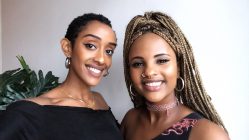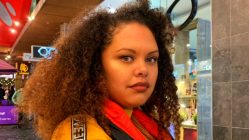Who are you? Give us an overview of your ethnicity/heritage?
I’m Aamil, an Australian born Indonesian with Dutch blood through my great grandparents. My parents were the first in our family to migrate to Australia.
How did you come to Australia or were you born in Australia? Please share your experiences.
I was born and raised in Australia, grew up in a predominantly Anglo environment which in-turn drives most of my beliefs and attitudes towards society.
Name one thing you really passionate about and why?
Soccer. It brings our passion and excitement to a dedicated team which is a good outlet to feed our primal senses of tribalism.
Describe a few things you find fascinating about Australia’s multicultural society?
Multiculturalism in Australia is well advanced in the melting pot. Different cultures can live side by side with others freely where in most countries a lot of disrespect and discrimination is instigated and sometimes made into law. Apart from the typical media attempting to drive conflict to sell more news, most people enjoy what multiculturalism brings to society.
What kinds of experiences have you had in relating with people whose backgrounds are different than your own?
I’ve had no problem, every culture is warming at a friendship level, however you may then feel the wedge if you take one step further such as dating someone from another culture. Those people who are strong-willed on the ‘norms’ of their traditions, may still want their cultures not diluted with someone they consider an ‘outsider’.
What did you learn from this experience?
It becomes one of the questions you ask before you get serious with someone in a relationship.
What does a commitment to diversity/multiculturalism mean to you?
It means the world can move forward as globalisation is a catalyst for multiculturalism and there is no going back. The world is getting more crowded and communication to other societies is getting easier. Those who do not embrace different cultures are going to be left behind.
What do you see as the advantages and challenging aspects of an increasingly diverse community. What can we do to overcome such challenges?
The advantage is that it offers different views of the world but at the same time dilutes tribalism. The more diverse we become, the more people feel as one human race. This ultimately leads to less racism and ethnocentricity.
Integrating new entrants into an existing society can be challenging on both sides. Differences in cultural and religious values could be polarising to the new entrants and those native to a country.
What fun and interesting activities/events can we do/hold to aid in bridging the cultural gap thereby creating an inclusive society for all to enjoy?
Run educational programs, festivals, sporting events inclusive to all races and cultures.







